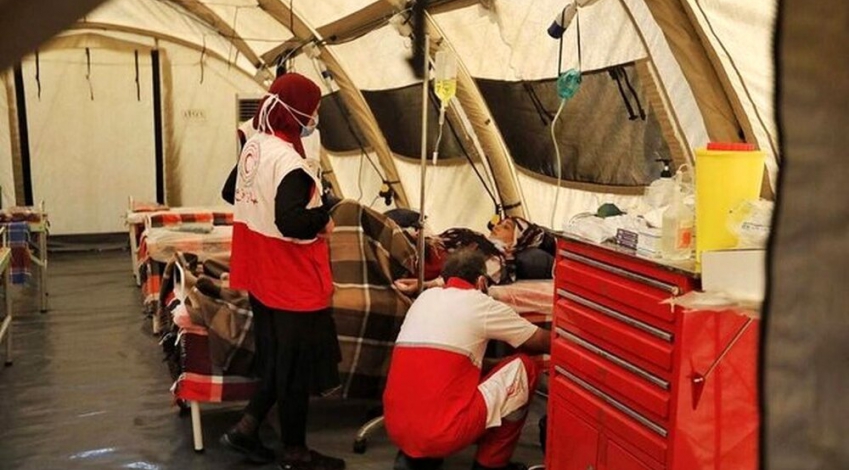Sunday 4 September 2022 - 20:42
Story Code : 399971
8 field hospitals, 2,000 medical teams to serve Arbaeen pilgrims
Seven emergency helicopters, 200 ambulances, 35 ambulance buses, and 20 motor lances have been deployed in different parts of the borders for health care and treatment of the pilgrims, he noted.
Three fixed-wing airplanes are located in Jiroft and Tehran airports to transport possible Arbaeen patients, which have a capacity of 50 to 100 beds, he also stated.
The Iranian Red Crescent Society dispatched a total of 44,000 rescuers and medical staff to provide services for the Arbaeen pilgrims.�The Arbaeen health and treatment convoy consists of 1,000 emergency medical technicians and 2,000 health teams who, in addition to providing services to the pilgrims of the Arbaeen trek, monitor the health of the environment, water, and food of the pilgrims on the way.
The Iranian Red Crescent Society (IRCS) dispatched a total of 44,000 rescuers and medical staff to provide services for the Arbaeen pilgrims.
The Arbaeen pilgrimage, which is one of the largest religious gatherings in the world, comes 40 days after Ashura, the martyrdom anniversary of Imam Hussein (AS), the third Imam of Shia Muslims, and the grandson of Prophet Muhammad (PBUH).
Each year, a huge crowd of people flocks to Karbala, where the holy shrine of Imam Hussein (AS) is located, to perform mourning rituals.
This year Arbaeen falls on September 17.
Before the outbreak of coronavirus, some 2 to 3 million Iranians attended annually in the Arbaeen march. However, last year, the rituals were held virtually to avoid the transmission of the disease.
By TEHRAN TIMES
# Tags











